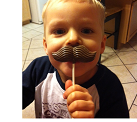
Keg fridge died
#1

Posted 30 March 2010 - 08:36 AM
#2

Posted 30 March 2010 - 08:51 AM
#3

Posted 30 March 2010 - 08:56 AM
What will happen if you carb warm beer is that it will not as easily absorb the CO2. Then, once you do get it to carb, you will lose a lot of that carbonation if you try to bottle it warm. The cold temps assist with the CO2 dissolving into the beer, not hinder. You can force carb warm, then cool it, then bottle (into cold/frozen bottles) which will help the beer stay carbonated.So my keg fridge shot craps and I don't have funds right now for a freezer and temp controller unit. I really prefer being able to dial in the carbonation from kegging rather than the general 1lb of sugar per 5g of homebrew(or whatever it is). So, could I fill my ked and pressurize it at room temperature and after a week or so fill bottles with a beer gun? Would they lose the proper amount of pressure as they cooled in the fridge? Thanks for the help.
#4

Posted 30 March 2010 - 09:00 AM
#5

Posted 30 March 2010 - 09:02 AM
In that case, you'll need a lot more pressure to carbonate.Sorry if I worded that poorly. I had planned on priming the keg still with my Co2 tank at room temp. I was afraid of the warming issue. I don't have a spare fridge anymore to keep the keg cool.
#6

Posted 30 March 2010 - 09:07 AM
#7

Posted 30 March 2010 - 09:25 AM
It won't require more CO2, it will just require more pressure to get the same amount of CO2 to dissolve into the beer. I don't think it's a lost cause but you should check the chart to see if it goes all the way up to room temp.So would you guys think this is a lost cause and I should go back to the old school way of bottling until I get a freezer? I have the chart hanging up in my brew area. I know with the warmer temp it will require more Co2 I just wonder if the bottles will have the same amount of pressure once they cool in the fridge.
#8

Posted 30 March 2010 - 09:33 AM
#9

Posted 30 March 2010 - 09:49 AM
No, bottle bombs come from CO2 coming out of solution. After you cap the bottles, no more CO2 can get into the system so the bottles should not break.Thanks for your help guys! Last question. Do you think bottle bombs would be a concern once they cooled in the fridge and aborbed more Co2 or am I thinking about this wrong?
0 user(s) are reading this topic
0 members, 0 guests, 0 anonymous users









